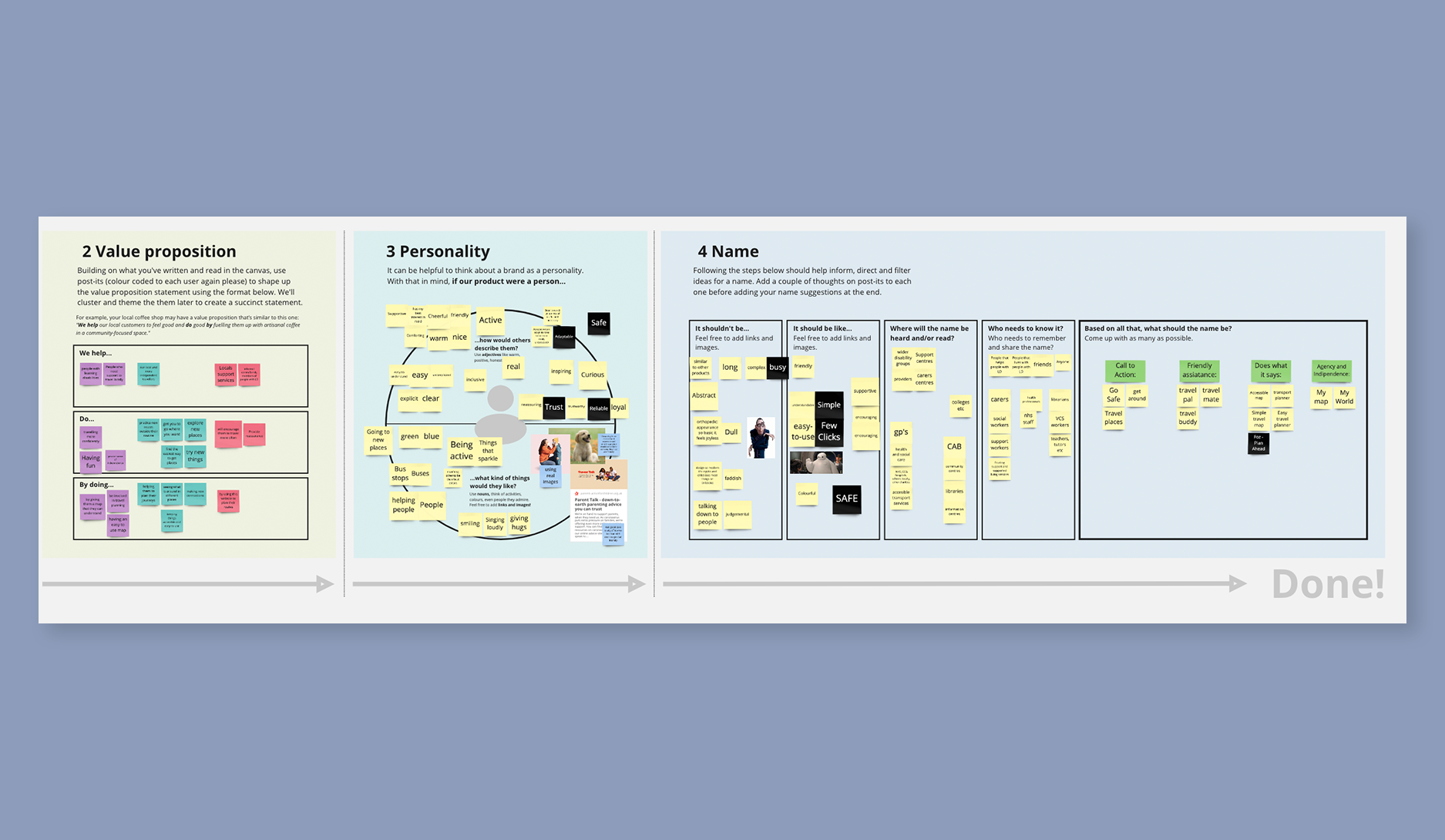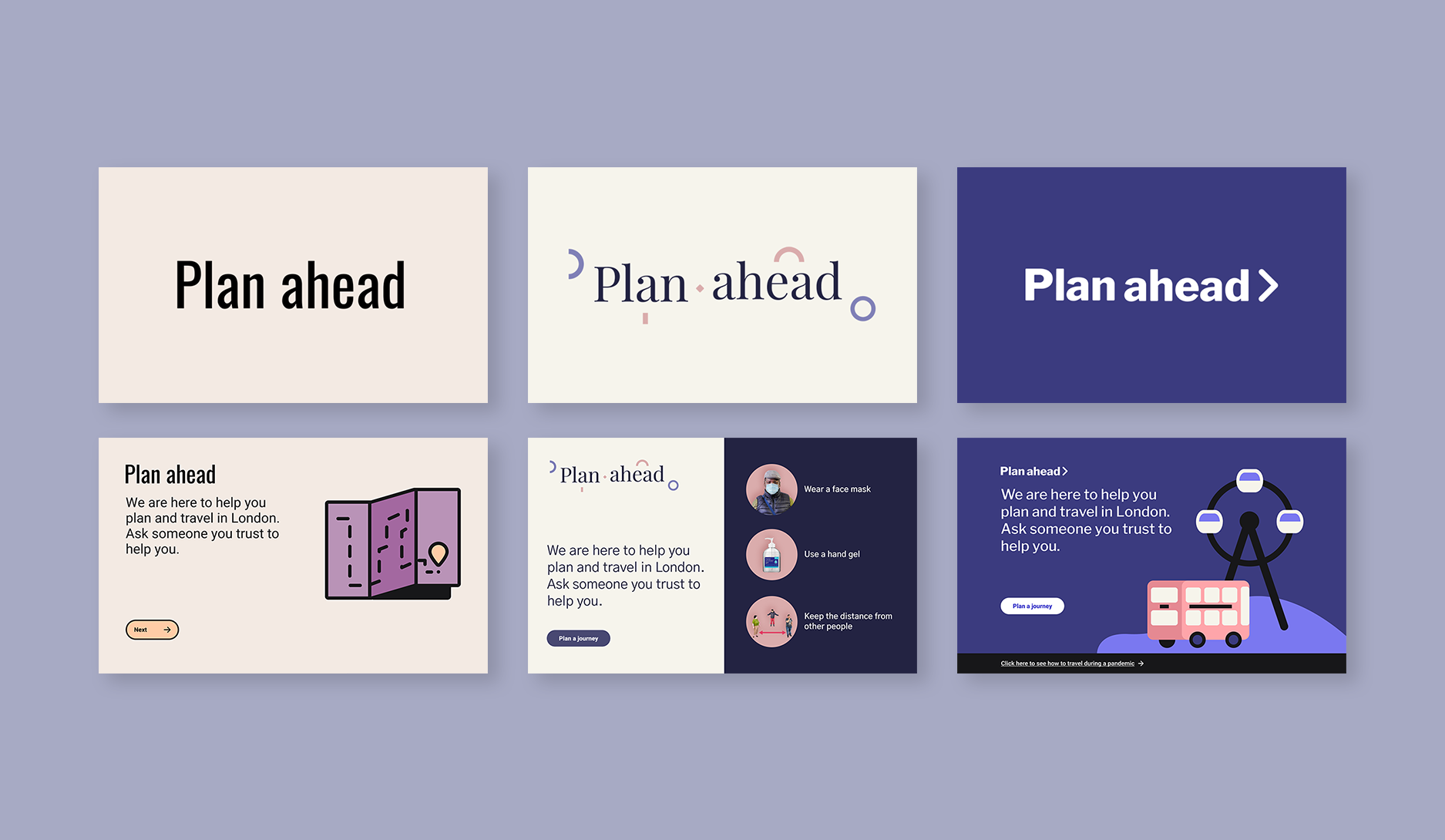Role
Lead Product Designer
Agency
Snook
Keywords
Private Beta, User testing, User interviews, Synthesis, Insights, Product Opportunities
Sector
Transport
Helping people with learning disabilities to travel more independently
The LGA in collaboration with NHS Digital grant funded innovative, digital social care projects. Twelve councils were selected for funding, with six progressing to implementation. This is one of those 6 projects.
Camden Connected Communities came to us with the ambition to create a digital solution to help people with learning disabilities to travel more independently in London.
Due to the sensitive group of users, we developed a private beta solution that will be tested further with a group of selected people with learning disabilities and their carers in a safe envirnoment.
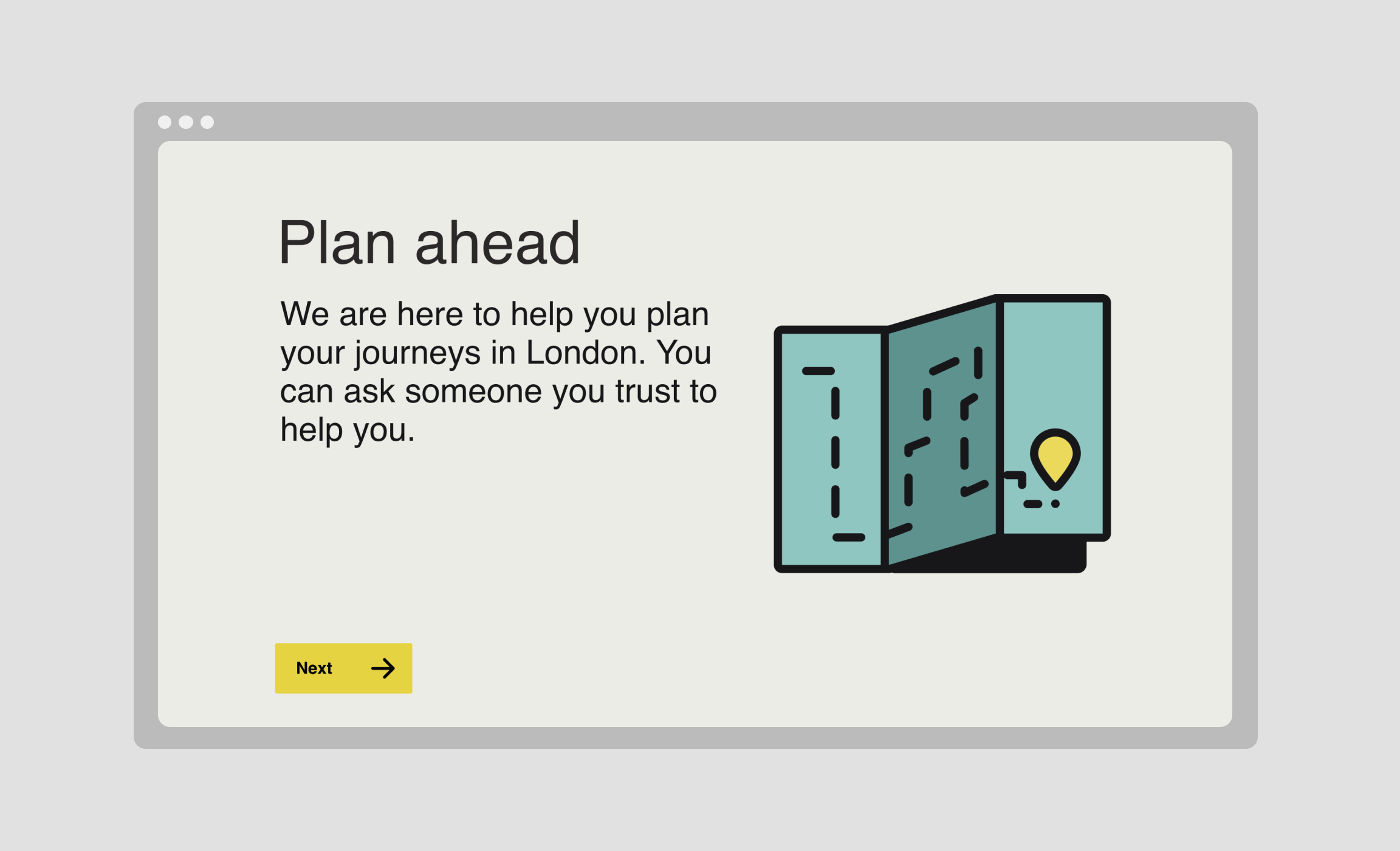
What is a learning disability and how can affect a person day to day?
A learning disability affects the way a person learns new things throughout their life. It is a difficulty with everyday activities and tasks. This disability affects someone for their whole life.
Some of our users can't use a phone, some can. Most of them will get lost using a regular travel app. We learnt that carers have to prepare people with learning disabilities a written or printed map and practice the route together at least three times in order to make it independently. For this reason, they feel unsafe to leave the house.
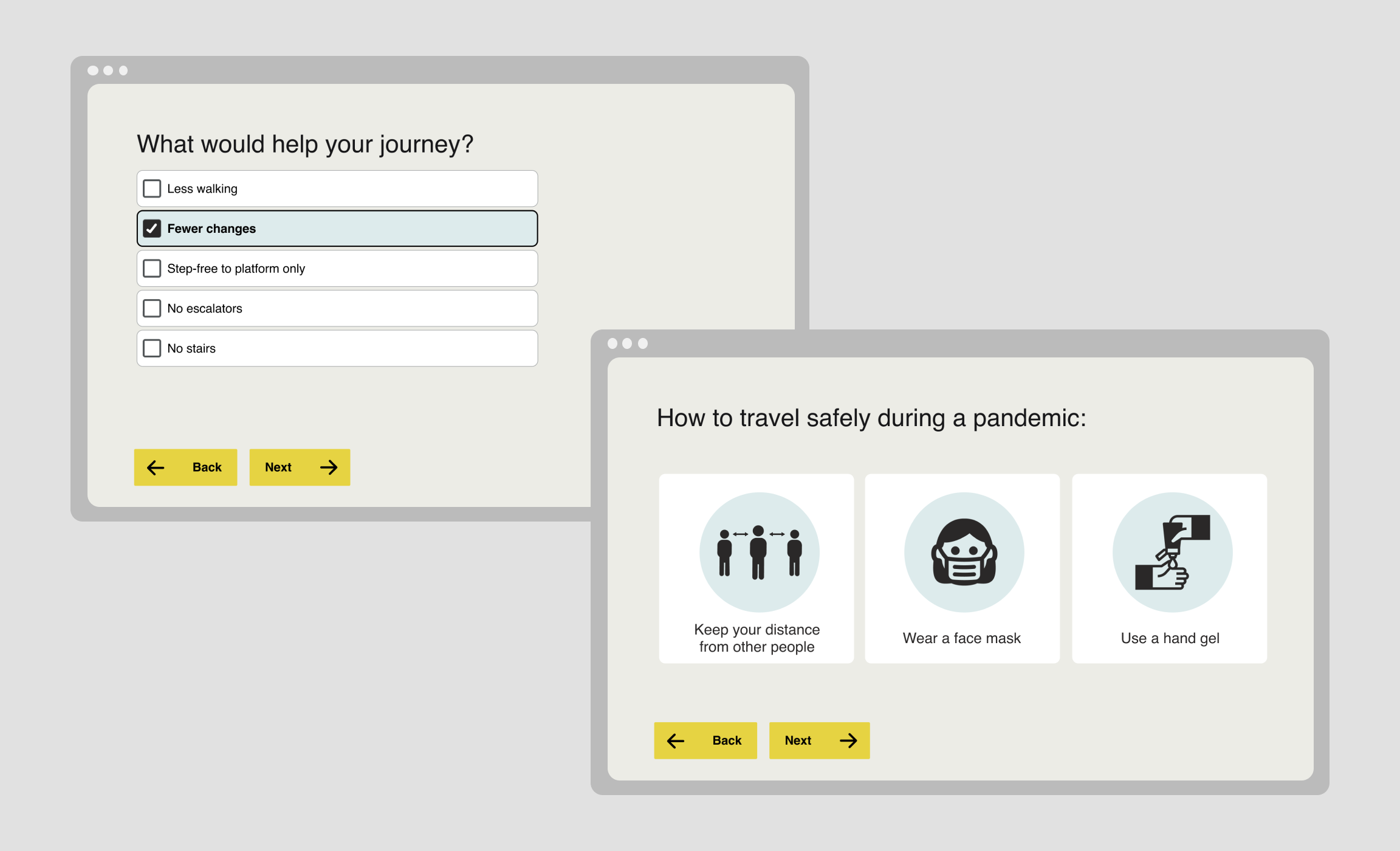
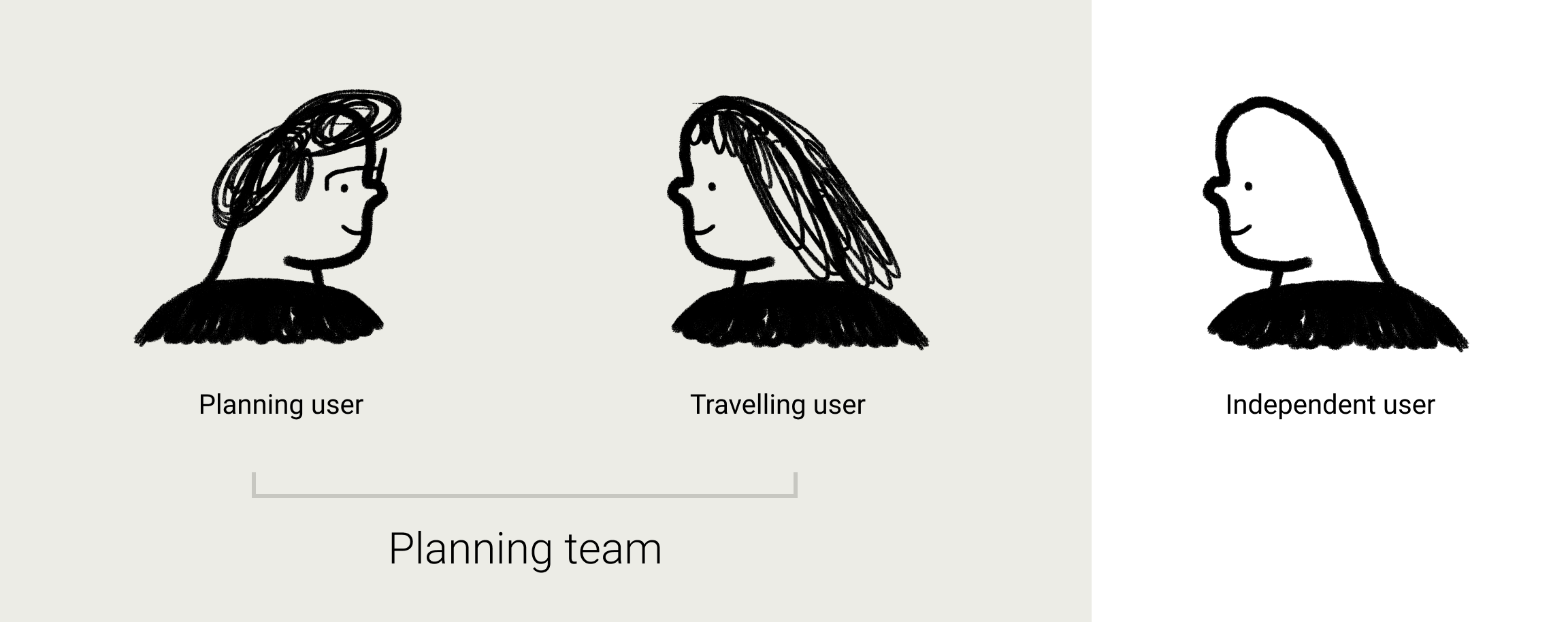
Illustrations from Snook brand
Due to safety and availability, the private beta development focused on the planning team, adults with learning disabilities and their support workers/family members. Planning user is a support/care worker or family member who helps to plan routes. Travelling user is someone who needs help to plan routes and will travel using the directions that are created. And independent user is someone who is able to plan their routes independently.
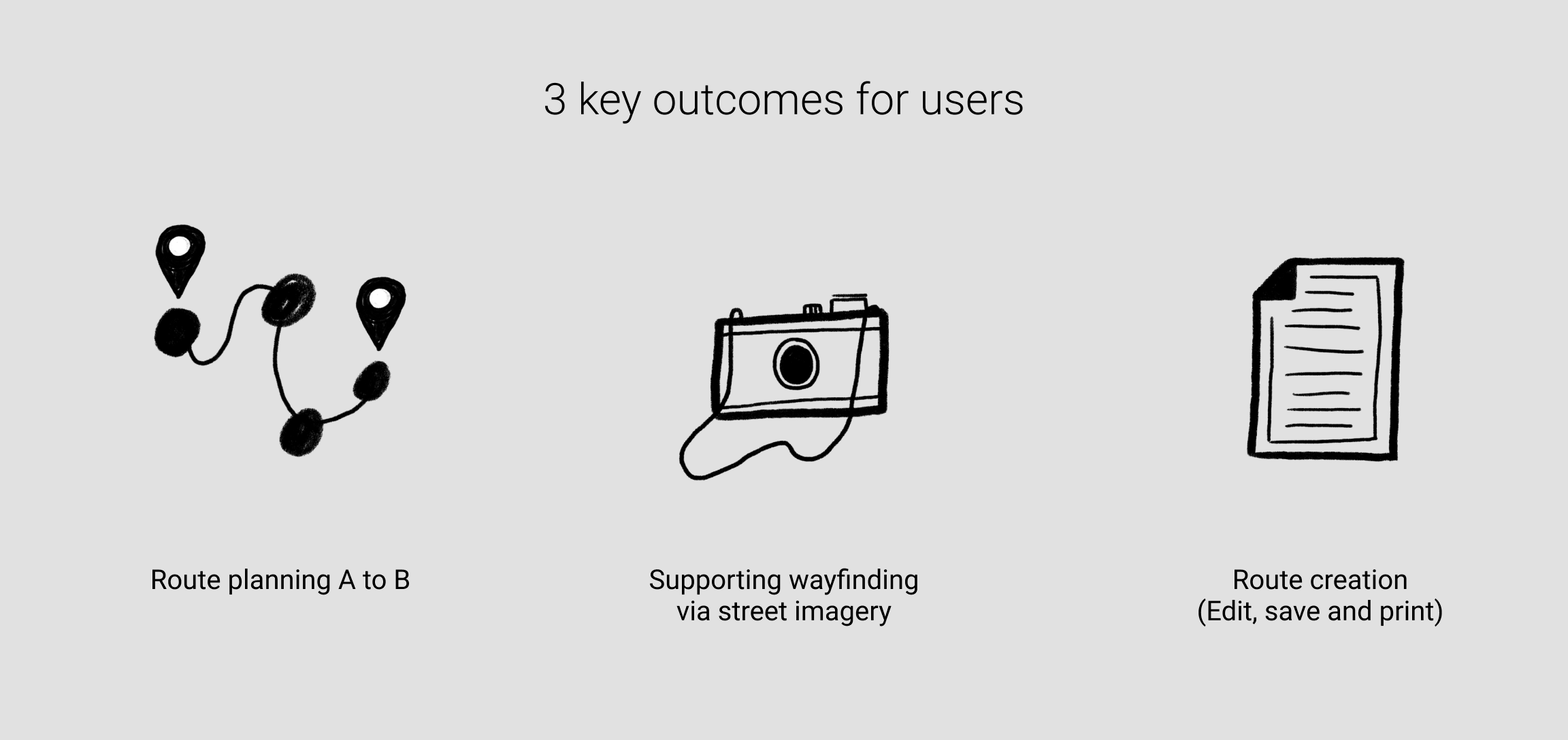
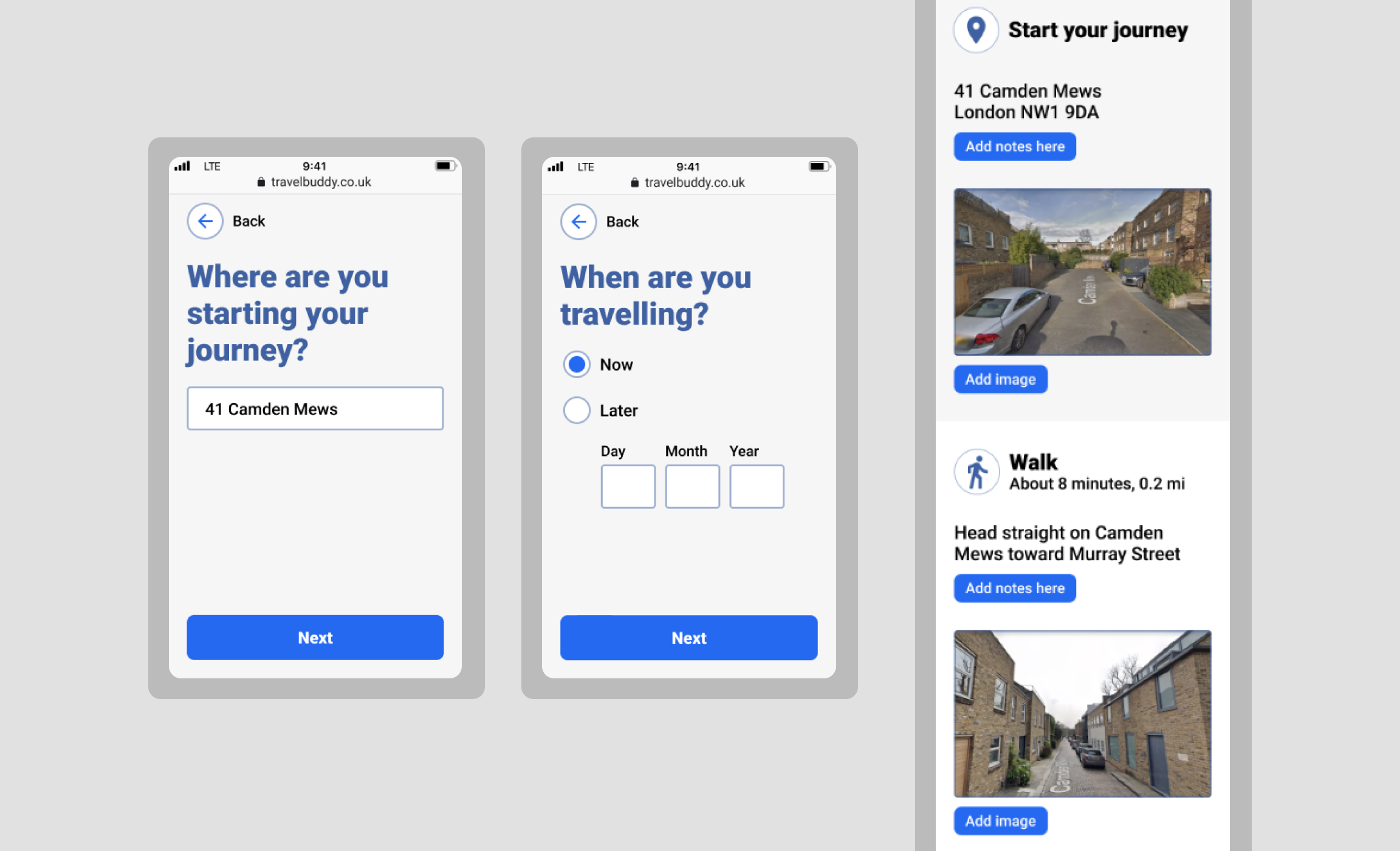
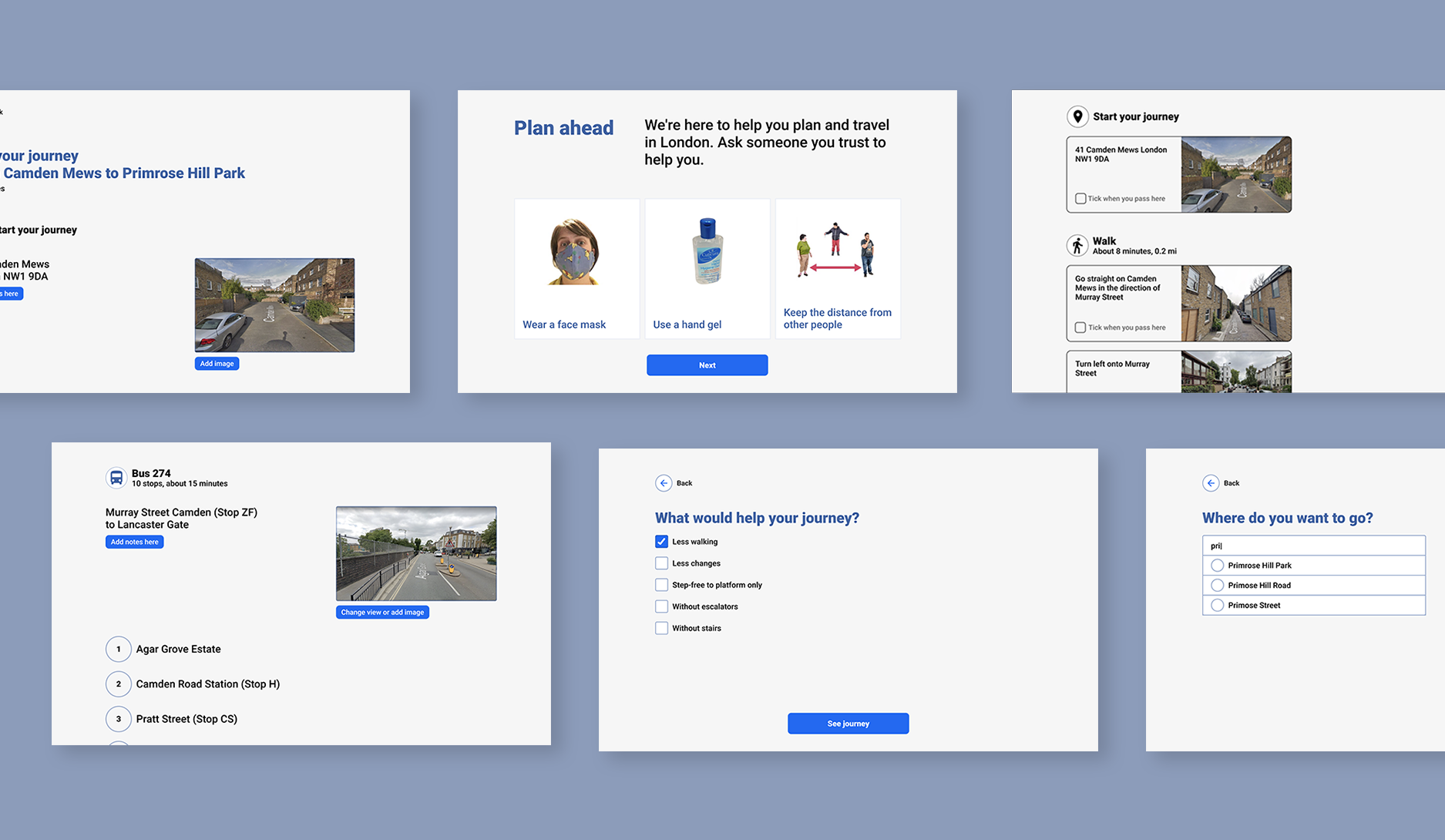
What we did?
We ran 3 phases of design and build simultaneously. We ran 2 phases of testing, where we conducted 12 interviews with carers and people with learning disabilities. We designed workshops to synthesise insights and to prioritise solutions based on high value and high confidence with the client.
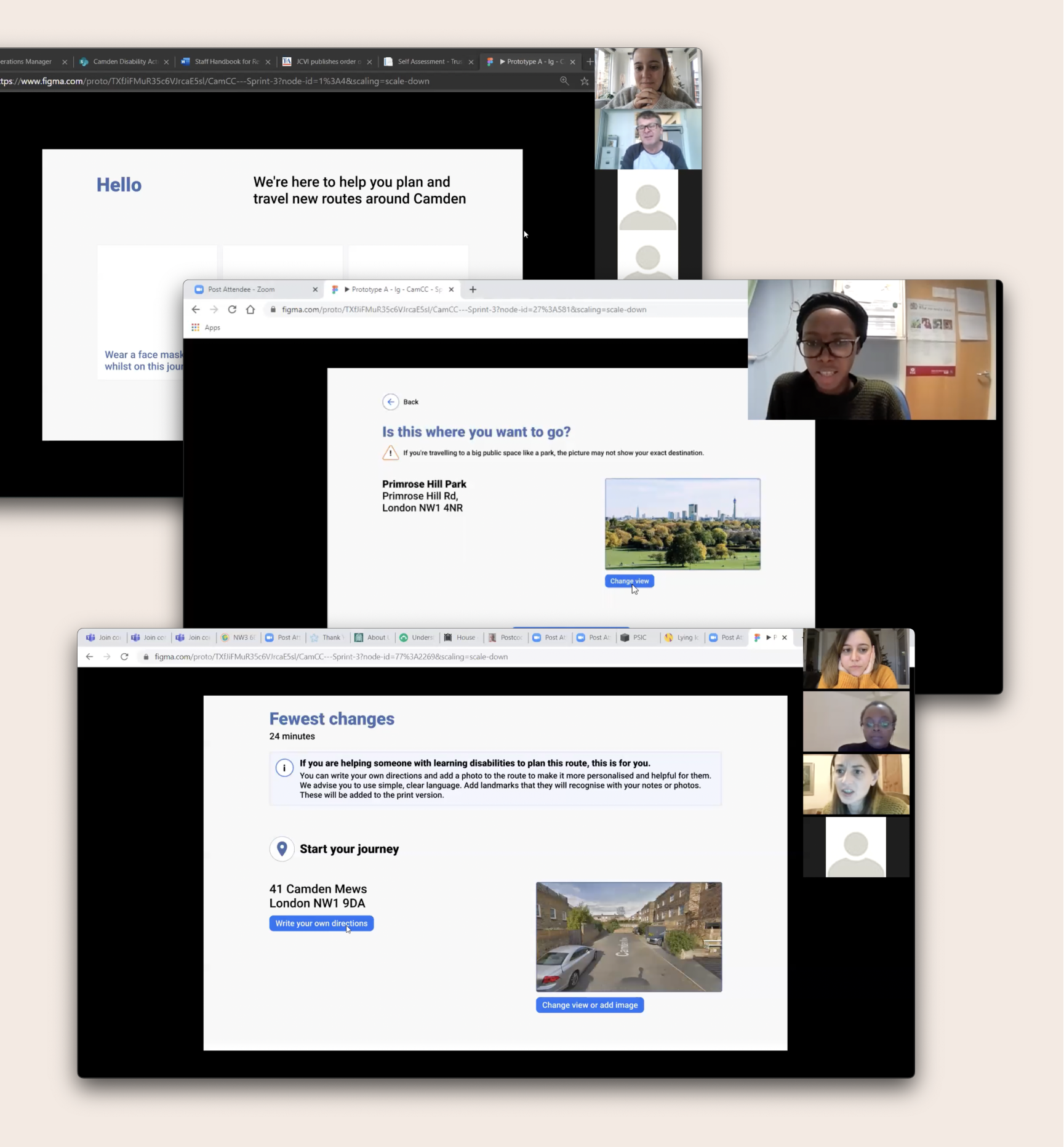
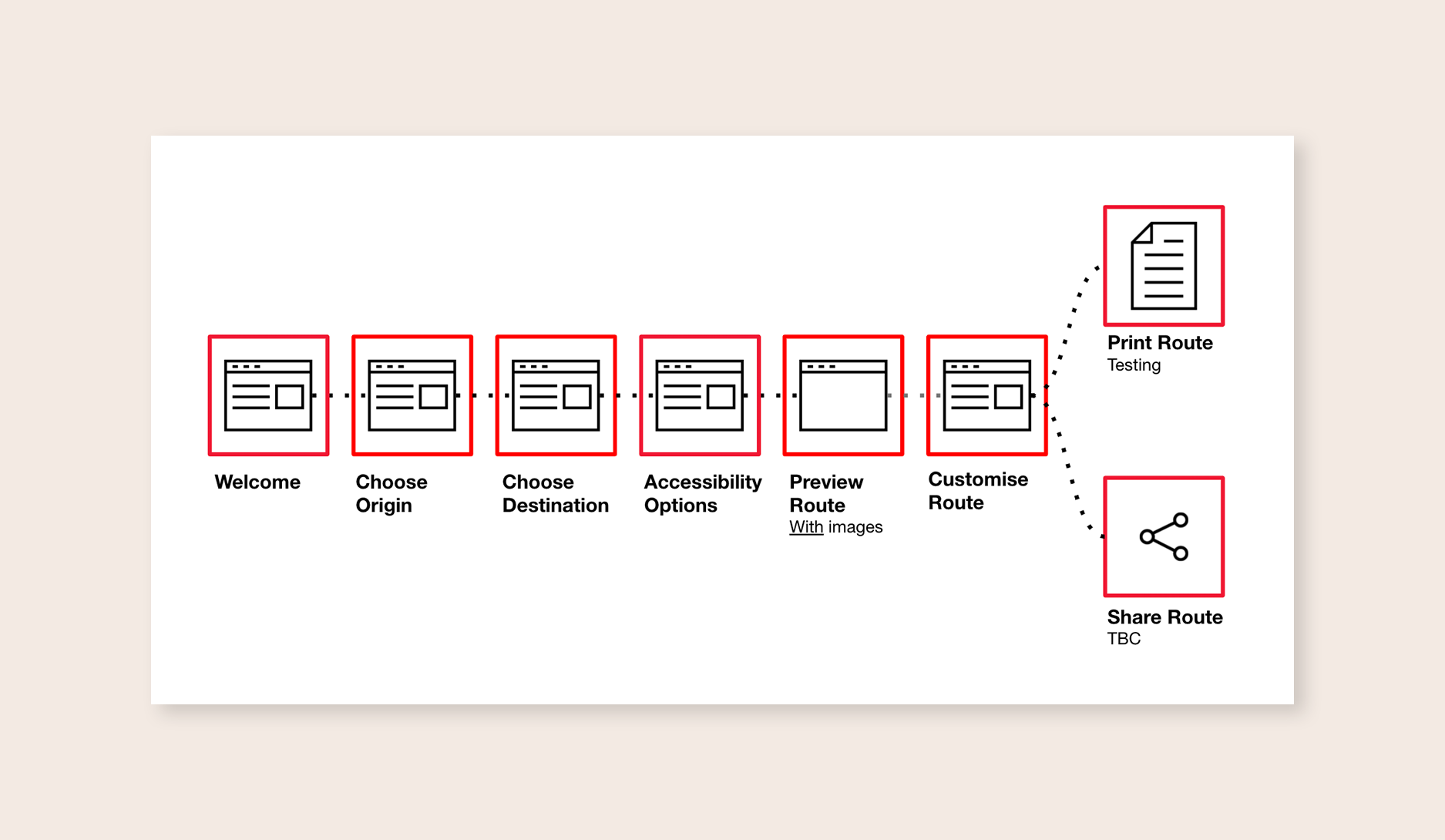
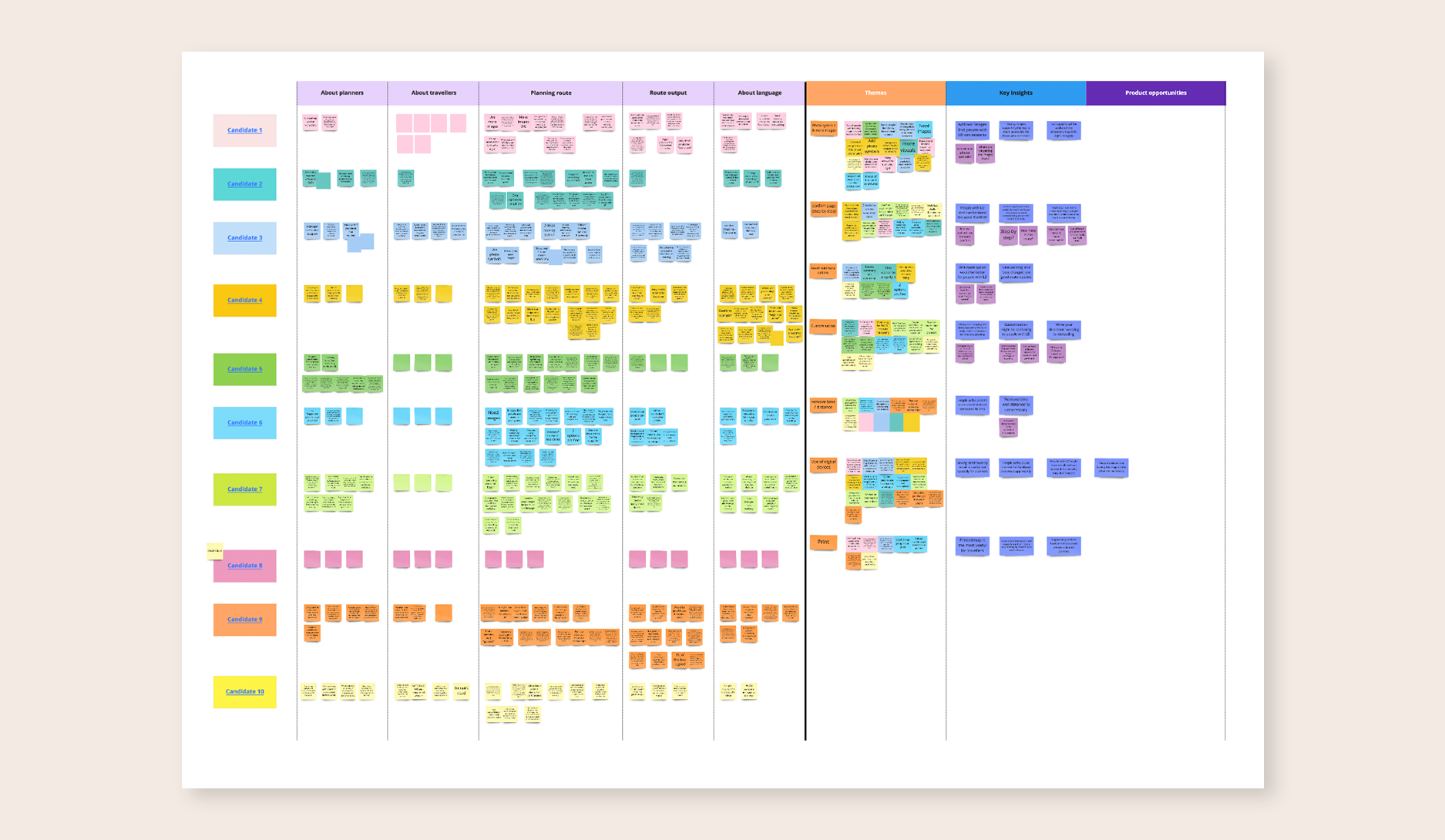
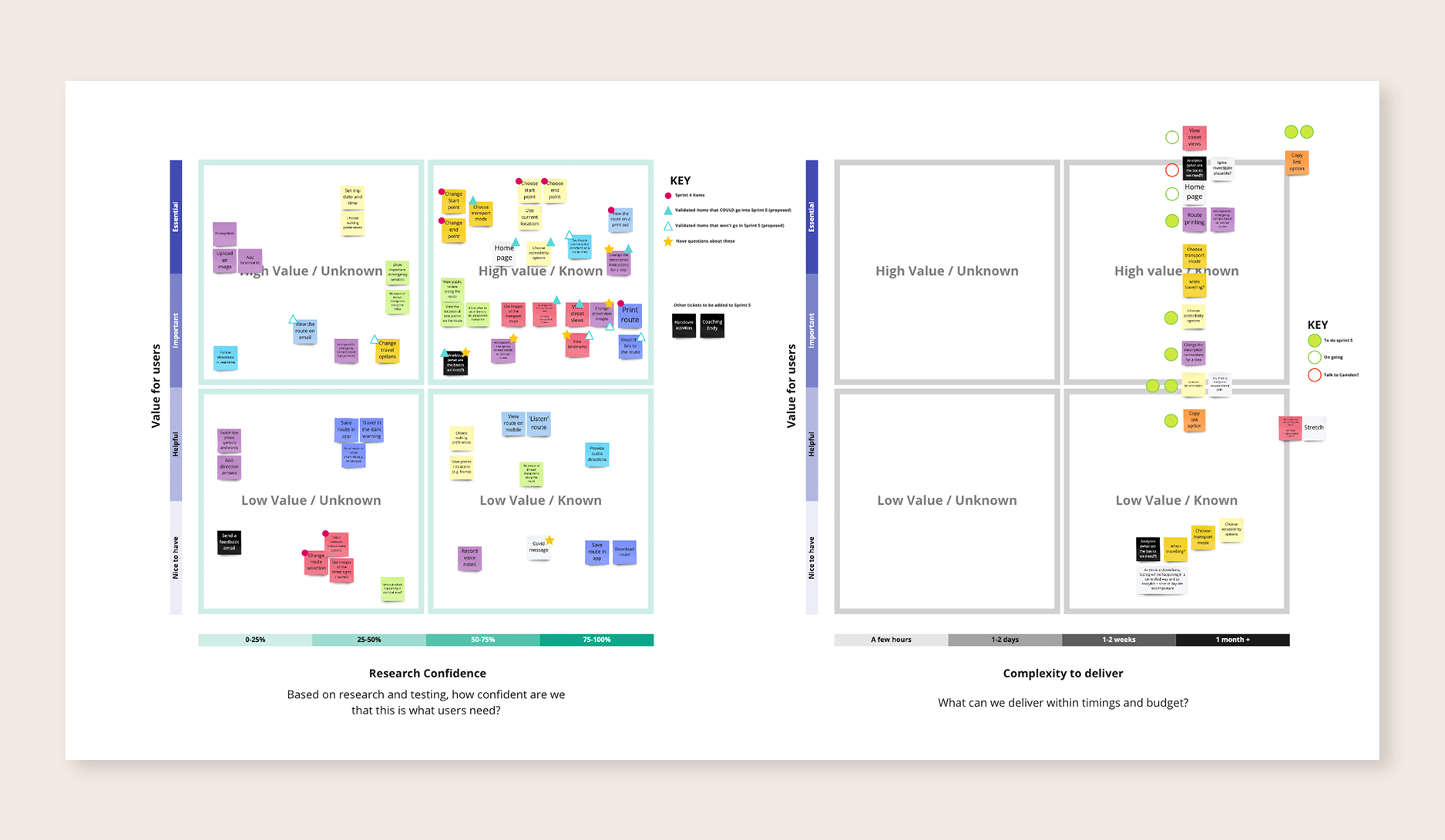
What have we learned?
Language is key. Using a more natural language without abstractions or jargon will help people to understand better what they have to do. (i.e. Where do you want to go? instead of Where is your destination?).
People with learning disabilities might not understand abstract concepts like time or distances. So if you say "Turn left in 3 minutes" or "Turn left in 2 miles" they might not understand what that means. This is why imagery to support text is really important to be more accessible. We introduced street view into the map directions to make it easier for people to recognise the place and know where to go.
Being able to personalise a route will help planners to be more efficient when planning a route for someone. They have the opportunity to add their own notes so they can use specific references like landmarks that the traveller will recognise, or even correct words that people might not understand.
